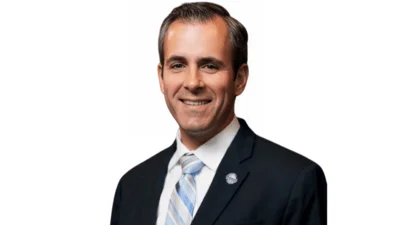Contributed photo
Contributed photo
Issued the following announcement on July 5
Illinois lawmakers are celebrating the state's first credit rating upgrade in 20 years. While the upgrade may be good for politician fundraising emails and bondholder bottom lines, ordinary Illinoisans have little reason to celebrate.
Here's what you need to know:
The ratings firm Moody’s Investors Service this week upgraded Illinois' credit rating one notch to Baa2, a level two notches above junk. It's a major turnaround given that just one year ago Illinois faced the prospect of becoming the first state to ever be rated junk. In mid-2020, shutdowns ravaged the state’s tax base, Sen. Don Harmon asked for a $42 billion bailout from Congress and the state projected billions in multi-year budget shortfalls.
What changed so dramatically in such a short period of time? Ignore the claims by Illinois lawmakers of their heroic acts of “balanced budgets,” “fiscal discipline” and the like. Even if those claims were true – and they are not – they couldn’t by themselves create such a swing in Illinois’ short-term fortunes.
Credit, instead, the massive $138 billion in federal funds from the multiple COVID relief and stimulus packages – as compiled by the Committee for Responsible Federal Budget – that are now flooding Illinois’ public and private sectors. Those billions have significantly reduced the probability of a bond default – which is ultimately what Moody’s really cares about.
Individuals have received some $32 billion via unemployment benefits and stimulus checks. Another $38 billion was distributed to local businesses through the paycheck protection program. The airline industry in Illinois got $16 billion. K-12 education will get some $6.5 billion.
And there is more to come. The CRFB numbers don’t yet include, among other items, the $13 billion that Illinois state and local governments will get from the American Rescue Plan.
The amounts are staggering and – putting aside the fact that the feds are printing and/or borrowing the money – the cash has juiced Illinois’ economy, boosted tax revenues and papered over Illinois’ fiscal problems, at least for a little while.
As our colleague Mark Glennon wrote recently, “All that aid, direct and indirect, significantly boosted the state’s economy. Personal income for the state’s most recently reported quarter ending in March is 17% over pre-pandemic highs, according to BEA numbers. That in turn has pushed state tax revenues back up to pre-pandemic levels or even higher, which is good news for bondholders.”
It’s no surprise, then, that Moody’s granted the state an upgrade. If bondholders aren’t better off today with $130 billion-plus injected into Illinois, they never will be.
On the other hand, the upgrade means little to ordinary Illinoisans. Once the federal money dries up, Illinoisans will be worse off than they were before the pandemic, as pension debts continue to mount and property taxes continue to grow.
Only last year, Moody’s raised its estimation of Illinois’ pension debt at its five state-run funds to $313 billion (June 30, 2020 valuation), up from $260 billion the previous year. (By comparison, the state’s puts its official shortfall for those five state-run funds at just $141 billion.)
That Moody's still gave Illinois a credit upgrade can be partially explained by the fact that bondholders aren’t on the hook for those hundreds of billions in retirement debts – ordinary Illinoisans are. That’s something that Moody’s is less concerned about.
What’s next for Illinois?
It says a lot about Illinois that it took billions and billions from the feds to save the state from becoming the first ever to be rated junk.
The sad fact is, none of those federal dollars were used to fix the state’s structural problems. Lawmakers didn't reduce property taxes or enact pension reform. They didn't improve the business climate or reduce government costs. If anything, they’ve made things worse by recently increasing Chicago pensions, giving public sector unions even more power and raising taxes on businesses.
And once the easy money’s gone, Illinoisans are going to have to repay their share of the trillions of federal dollars through higher taxes, higher inflation, or some combination of the two.






 Alerts Sign-up
Alerts Sign-up